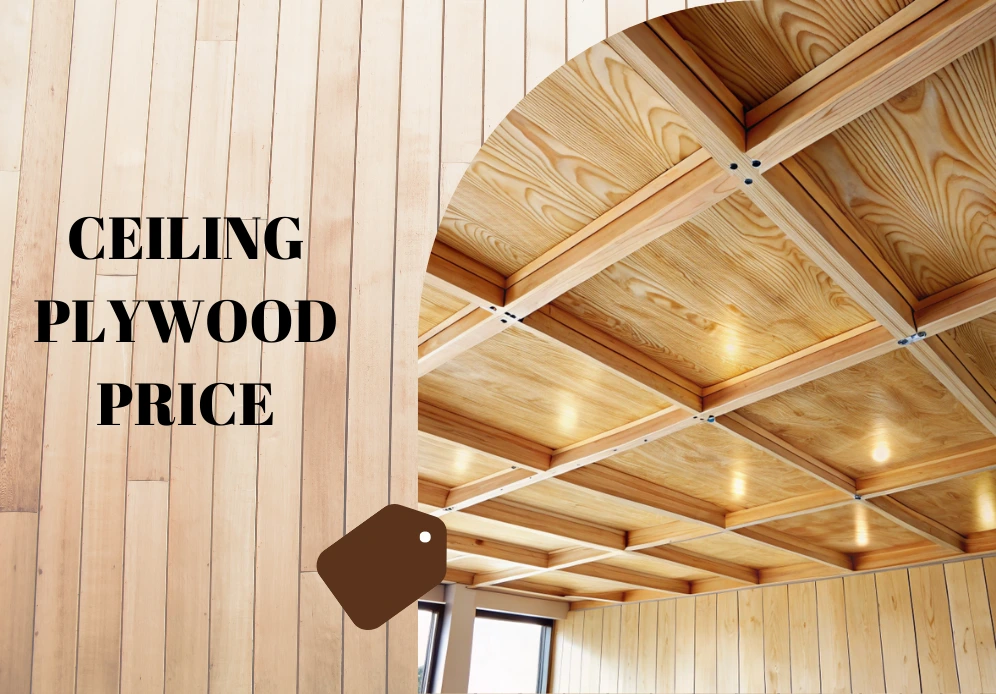Choosing the right plywood for your ceiling can significantly impact both the aesthetic appeal and functionality of your space. Ceiling plywood not only contributes to the visual appeal but also plays a crucial role in insulation and acoustics. In this guide, we’ll explore the factors influencing ceiling plywood prices, the different types available, and tips for making an informed decision.
Ceiling Plywood
Ceiling plywood is a type of engineered wood designed specifically for use in ceiling applications. It is known for its durability, ease of installation, and versatility in design. Typically, it comes in various finishes, thicknesses, and types, each affecting its overall price.
Factors Affecting Ceiling Plywood Prices
Several factors influence the price of ceiling plywood, including:
- Type of Plywood: Different types of plywood, such as marine plywood, hardwood plywood, and softwood plywood, have varying costs. Marine plywood, for example, is treated for high moisture resistance and is generally more expensive than standard plywood.
- Thickness: Thicker plywood generally costs more than thinner sheets. The thickness required depends on the ceiling’s structural needs and aesthetic preferences.
- Finish and Texture: Plywood with specialized finishes or textures, such as veneer or laminate, will usually be priced higher due to additional processing and materials.
- Grade of Plywood: Plywood is graded based on its quality and appearance. Higher-grade plywood with fewer defects will be more expensive.
- Brand and Supplier: Different brands and suppliers may offer varying prices based on their quality standards and market positioning.
- Geographic Location: Prices can vary based on location due to transportation costs, local demand, and regional availability of materials.
Types Of Ceiling Plywood And Their Prices
Here’s a look at some common types of ceiling plywood and their typical price ranges:
Softwood Plywood
Often used in residential settings, softwood plywood is priced between ₹2,505 to ₹5,010 per sheet, depending on the grade and thickness.
Hardwood Plywood
Known for its strength and durability, hardwood plywood can range from ₹5,010 to ₹10,020 per sheet. It’s commonly used in high-end residential and commercial projects.
Marine Plywood
Designed to withstand high moisture environments, marine plywood is priced around ₹6,680 to ₹12,525 per sheet. It’s ideal for areas prone to humidity or water exposure.
Veneer Plywood
With a thin layer of real wood veneer on top, this plywood can cost between ₹5,855 to ₹10,855 per sheet. It provides an elegant appearance and a refined texture.
How To Choose The Right Ceiling Plywood
Selecting the right ceiling plywood involves considering several factors:
- Purpose and Functionality: Determine whether the plywood will be exposed to high moisture levels, and high traffic, or if it needs to offer sound insulation. For example, marine plywood is best for moist environments, while veneer plywood provides a luxurious finish for visible areas.
- Aesthetics: Choose a finish that complements the interior design. For a sleek and modern look, opt for plywood with a clean veneer finish. If you’re aiming for a more rustic appearance, consider plywood with a natural wood grain.
- Budget: Balance your aesthetic and functional needs with your budget. Higher-quality plywood offers better durability but comes at a higher cost. Explore pricing from various suppliers to strike a balance between quality and expense.
- Installation: Ensure the plywood you select is easy to install or consider hiring a professional for complex installations. Some types of plywood may require specific handling or installation techniques.
Tips For Saving On Ceiling Plywood
- Bulk Purchase: Buying plywood in bulk can reduce the per-sheet cost. This is especially useful for large projects where multiple sheets are needed.
- Compare Prices: Request quotes from several suppliers to secure the most favorable deal. Different suppliers may offer varying prices based on their quality and market positioning.
- Look for Sales: Keep an eye out for sales and discounts from local hardware stores or online retailers. Seasonal promotions or clearance events can offer significant savings.
- Consider Alternatives: Sometimes, alternative materials or lower-grade plywood may meet your needs at a lower cost. For example, ceiling tiles or drywall might be more cost-effective for certain applications.
Conclusion
Understanding the factors that influence ceiling plywood prices and exploring different types can help you make an informed decision for your project. Whether you’re renovating your home or completing a commercial build, selecting the right plywood ensures both functionality and aesthetics. Keep these considerations in mind, and you’ll find the perfect plywood to suit your needs and budget.
Frequently Asked Questions (FAQs)
What Is The Average Price Of Ceiling Plywood?
The price of ceiling plywood varies based on type and quality. On average, it ranges from ₹2,505 to ₹12,525 per sheet.
How Does Thickness Affect The Price Of Plywood?
Thicker plywood generally costs more. Prices increase with the thickness of the sheet due to the higher material costs and processing.
Are There Cheaper Alternatives To Plywood For Ceilings?
Yes, alternatives such as drywall or ceiling tiles may be less expensive but may not offer the same durability or aesthetic appeal as plywood.
How Do I Find The Best Price For Ceiling Plywood?
Compare prices from different suppliers, look for sales, and consider purchasing in bulk to get the best deal. Additionally, negotiating with suppliers may yield better pricing.
Is It Worth Investing In Higher-Grade Plywood For Ceilings?
Higher-grade plywood offers better durability and a more polished finish, making it worth the investment for high-traffic or high-visibility areas. It also generally results in fewer defects and a more refined look.

